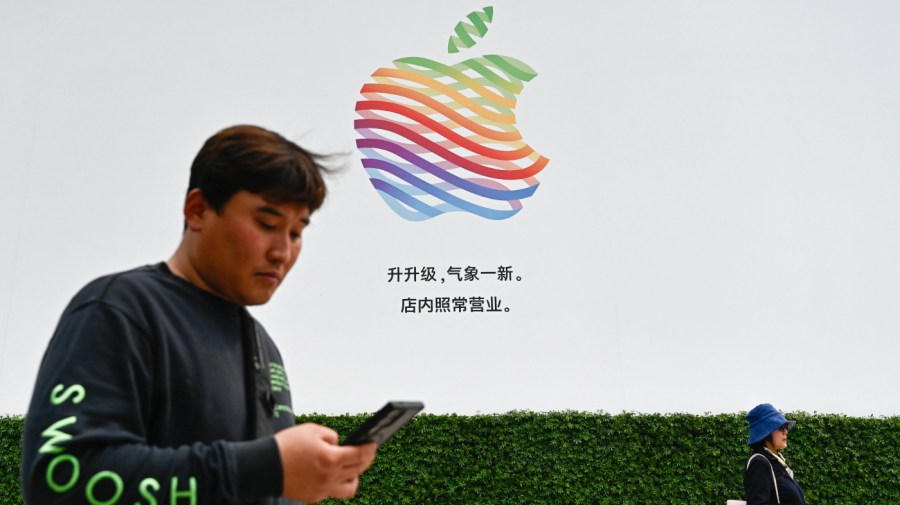Customs tariff test: The moment of truth is great technology in China

Imagine to manage your company from a high -tech university campus with armed guards on the gates, listening devices in the walls and an owner who insists on handing over your plans to keep the lights.
Most executives will defend the exits. But for years, American technology companies have made peace with this preparation in China. Now, exposed to definitions, they feel the consequences of the demonic deal.
One story of definitions may be described. While their criticism is often due to its economic inefficiency, they served a vital purpose. They have revealed the extent to which American technology giants are at risk through their operations in China.
By inviting the audit, the large technical tariff force to face the weaknesses that they have long ignored: their excessive dependence on Chinese manufacturing, its reckless partnerships with companies related to the authoritarian government and their transfer to sensitive technology to the hands of the largest opponent in America.
The major technology companies that caught ignited, declined after decades of deep intertwining.
On April 7, Chinese media reported that Microsoft will close its Shanghai -based joint project with 2000 workers’ demobilization. A month or two – the history was not publicly announced – Microsoft was quietly closed by the famous artificial intelligence research laboratory in Shanghai.
“We do not see [China] Satia Nadella, CEO of Microsoft, told CNBC in 2023, a major issue for us, fully frankly, “Satia Nadella, CEO of Microsoft, told CNBC in 2023, a major issue for us, fully frankly.
But Microsoft was more than just a commercial partner. This has helped form a very technological infrastructure that feeds China’s height now. This separation between what Microsoft executives publicly say and what their company has created for decades talking about volumes.
The account has long been late.
Cooperation path long. Everything began in 2003, when Microsoft gave the Chinese government access to the Windows source code as a condition for entering the market. It is now known that the agency that signed the agreement on behalf of the Chinese government, CNITSEC, is run by the Ministry of State Security, the Civil Spy Agency in Beijing.
In 2023, Bing from Microsoft became the most used search engine in China after a pattern of compliance with government control requests. Meanwhile, Google came out in China in 2010 and is now banned after she refused to follow control orders.
In 2012, Microsoft also signed a deal with the Shanghai government that allowed 21vianet, a data center company in China, to operate its cloud service there. 21vianet is now the only operator of Microsoft Cloud Services in China. But 21vianet admits in the SEC file that “the Chinese government may interfere or affect our operations at any time.”
Microsoft is not alone in its exposure. Apple earns nearly five revenues from China and produces most iPhone devices there. Bending to Beijing’s demands, he has undergone the application store. Apple relied on Chinese suppliers associated with forced work and human rights violations in 2021.
Stress test results for definitions? They revealed that when they were forced to choose between the returns of shareholders and geopolitical alignment, many companies chose to reach the markets – until this arrival comes at a higher price.
What we watch now is not just a transformation in the supply chain, but it is slowly relaxing to an outdated idea: that American technology companies can tend to our opponents without an ethical or strategic cost. The next stage of globalization will be defined by its flexibility.
Microsoft’s decline is a recognition of reality. The relationship between the United States and China is no longer a stadium for growth. It is a minefield. Other technology giants would do a good job.
When you build your work in a castle owned by a competitor, do not be surprised when the bridge rises. The era of tariff was forced at an expense. Now, Big Tech is at a crossroads: doubles on a model or start the long and necessary exit.
Jeffrey Caen is the director of the technology integration project policy and author of his book “The Ideal Police State” (Heisht).




Post Comment